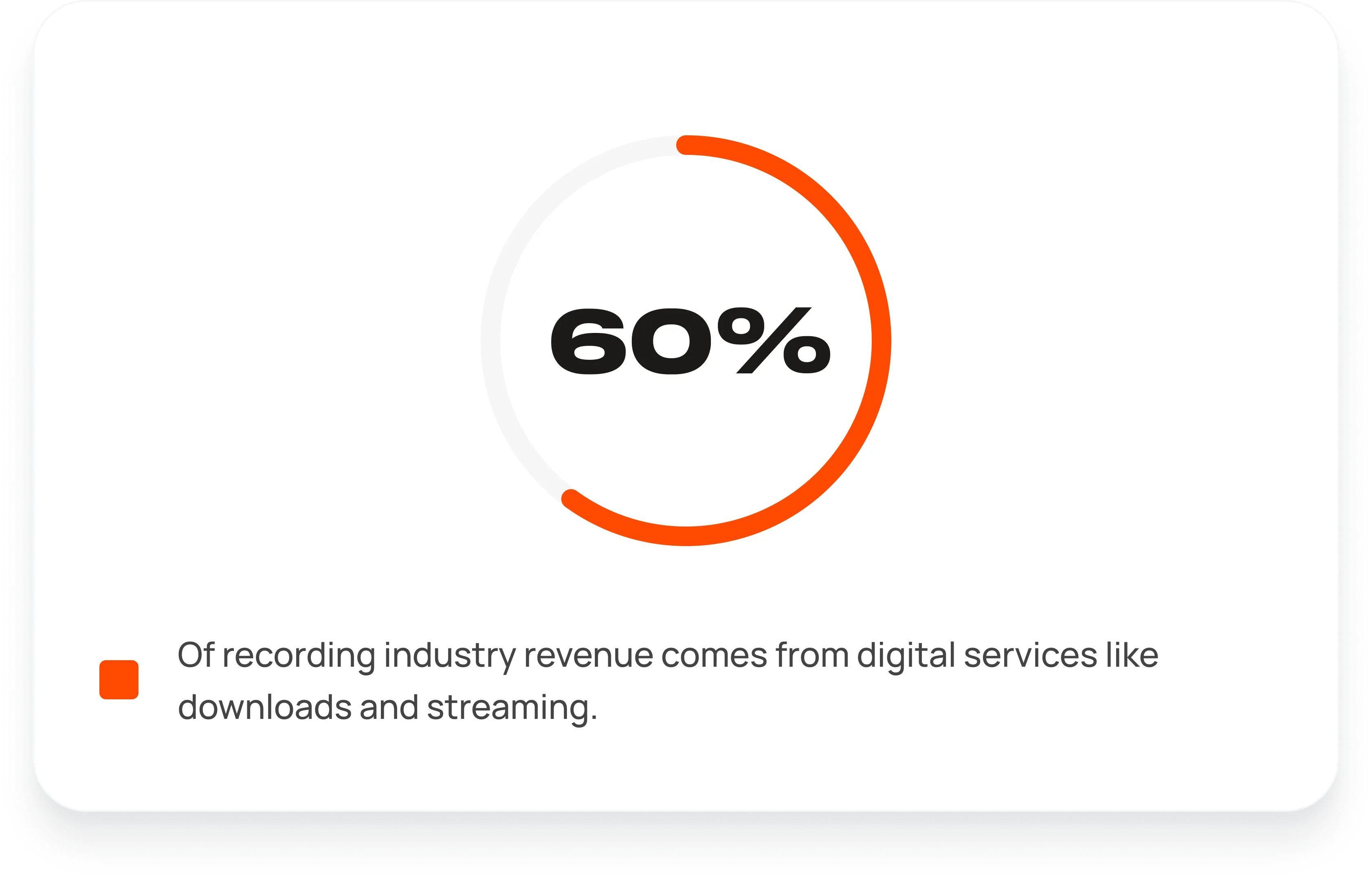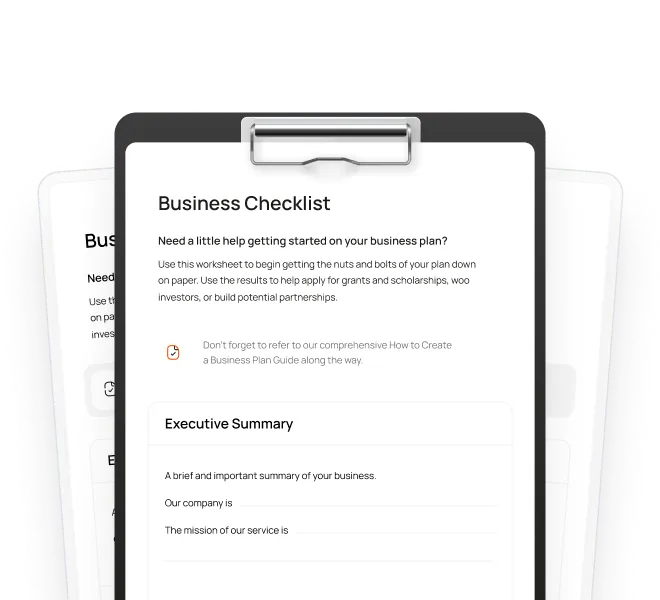What to Know About Creating a Record Label
Let’s break down some of the key facts you’ll need to be aware of if you want to start an independent record company:
Finding artists that can appeal to a range of fans can be tough.
You’ll need to network, go and see bands, talk to audiences and spend time on A&R (artists and repertoire) to find the right type of music.
Starting a record company can be expensive.
From renting studios and hiring producers to spending on marketing and promotion, initial and ongoing outlays may be expensive. You’ll need to keep a very close eye on finances.
Managing multiple areas will be challenging.
You’ll be scheduling recording sessions, arranging to have people in the right place at the right time, promoting music on social media and more. You’ll need to be a master of the calendar and the to-do list.
Learning as you go is par for the course.
Music and creativity can sometimes mean surprises. You'll need to react well to unexpected challenges and keep a cool head.
Identifying the music’s unique selling points is essential.
Music is very personal to people, so understanding what can appeal to a reasonable number of fans is necessary for success.
Marketing is (almost) everything.
There’s a large amount of music already out there. You’ll need unique, distinct branding and advertising to help your artists stand out from the crowd. This will help you get a competitive advantage. Think about radio play, fliers, posters, print media, internet ads and social media.
Understanding distribution is necessary.
You will want to establish how you’re going to get music to fans. Will you opt for a digital-only strategy with downloads and streaming, or will you plan to release physical products like CDs or vinyl?
Making use of digital services is very useful.
Music services like SoundCloud, Bandcamp, iTunes, Amazon Music, Pandora, Google Play Music or Spotify make distribution easier and can help potential fans discover your music.
Your Record Label Business Needs a Plan
Business plans are easily overlooked by record label businesses — after all, if it’s solely creativity and music, you don’t need a business plan, right? Wrong.
You need to define how you’re going to run your record label business, market your artists, get sales, make a profit and grow. This can only come about by creating a watertight business plan. It will help you get your thinking in order and show your commitment to your record label business.
All businesses need a business model, which is how you will generate music sales, pay for services and make money. Think about your business model now in order to start selling music and generating revenue from day one.
You will also need to look at financial projections for your record label business. What are your expected sales and revenues? What is your profitability? How much money will you keep in the business to grow it? How much will you pay yourself, your artists and others?
Business plans do vary slightly, but they should all cover the following areas:
An executive summary with the most important points from your business plan
Your goals and what you hope to achieve with your record label business
A description of your record label business, background information and context
A market analysis and likely demand for music
An overview of how your record label business is structured
Your business model
How you will market and sell your music
Financial projections, revenue, and profitability
Appendices
We’ve got the perfect guide to writing your business plan.
Setting up Your Record Label Business and Business Operations
Once you've legally created your record label business, you’ll need to get some other things in place.
Marketing Your Record Label Business
Marketing will be a huge part of your record label business and a big part of your budget. Naturally, you will need an awesome website for your record label and artists, but you'll also need to get branding, newsletters, digital ads, social media accounts and other channels in place.
Employees
To begin with, you probably won’t need to hire anyone else for your record label business on a permanent basis, especially if you’re a good administrator. Instead, you’ll likely be making use of contract, on-demand services like producers, graphic designers, engineers and the like.
Finances and Taxes
You will need a separate business bank account for your record label business. You might also want to consider a business credit card. Additionally, you will need to keep careful bookkeeping records and file business and personal taxes. Here at Bizee we can even help you file your taxes.
Location of Your Record Label business
To begin with, you can likely run your record label from home or a shared working space. This is great as it reduces your office costs considerably. You will, of course, need to arrange meetings with artists, producers, engineers and others, so look for local places that let you hire out meeting rooms for that purpose. You’ll also need to make arrangements with recording studios, and you can start by exploring local options. Don't forget that if you work from home, you can write off part of your utility and housing costs against your taxes.
Equipment for Your Record Label business
The day-to-day administration of your business will only need a computer, laptop, tablet or smartphone. Actually recording your artists requires a special studio setup that can cost hundreds of dollars an hour.
Software and Process
Record label entrepreneurs make extensive use of software; see our great list of the top apps at the end of this guide.
The Complete "Start Your Business" Checklist
A Clear and Comprehensive Guide to Starting Your Business the Right Way
Rules, Regulations and Taxes for Your Record Label Business
You can’t escape real-world licenses, permits and regulations. You will need to explore local, state and federal licenses and permits, and we can also help with researching your business licensing needs.
Taxes
Taxes are a fact of life if you’re in business, and there are various ways you will need to file and pay them. This can include self-employment tax, state income tax and federal income tax. Depending on where and how you’re selling products and services, you may also be liable for sales and use tax. As a rule of thumb, we recommend holding back around a third of your earnings to pay your taxes. We can also prepare and file your tax returns for you.
Maintaining Your Record Label Business
There are certain forms and legalities you need to follow to keep your record label business in good standing.
File an Annual Report
Depending on the state you’re located in, you will probably have to file a report every year. This report tells the state about any major changes to your business, and we can file your Annual Report on your behalf.
Pay estimated taxes
You will be expected to pay estimated taxes on what you plan to earn in the current business year. Typically, you will need to pay estimated taxes in April, June, September and January (of the following year).
Renew Business Permits and Licenses
Your business will probably have several licenses, permits and other regulations. These typically need to be renewed every year.
File your taxes
You will need to file your taxes once a year.
Pay payroll and sales taxes
If applicable, you will need to make payroll and sales tax payments on a regular basis.
Prepare your taxes
You will need to work with your accountant to prepare all the taxes you need to pay.
Insurance for Your Record Label Business
Most record label businesses should have comprehensive business insurance. There are various types.
Workers’ Compensation Insurance for Your Record Label Business
Workers’ compensation insurance provides coverage for job-related illnesses, disabilities or injuries that affect employees. Regulations for this insurance vary from state to state. It typically covers areas like medical costs, loss of earnings, compensation and retraining.
General Liability Insurance for Your Record Label Business
This insurance protects your record label business from claims due to being sued. This may include injury to artists, members of the public, property damage, personal liabilities, legal defense and more. It can help protect your business from financial penalties and bankruptcy.
Home and Auto Insurance for Your Record Label Business
If you are working from home or driving a vehicle for work, check whether your existing home and auto policies cover you for work use of your home or car. If not, you should either expand your policy so you’re covered or get dedicated business insurance.
Useful Online Tools for Your Record Label Business
The right software and apps will make it much easier to run your record label business. Here are our recommendations for some of the best tools out there to make business operations a breeze.
Collaboration
Social Media Management
Communication
Email Marketing
Advertising
Customer Relationship Management (CRM)
Customer Support
Human Resources
Website Development
Analytics
Hiring
Please note: This post contains affiliate links and we may receive a commission if you make a purchase using these links.
Conclusion
If you love music and can handle challenges, record label entrepreneurship could be right for you. If you can find great artists, manage them well, stay on top of marketing and put together a solid business plan, you will have every chance for success.

